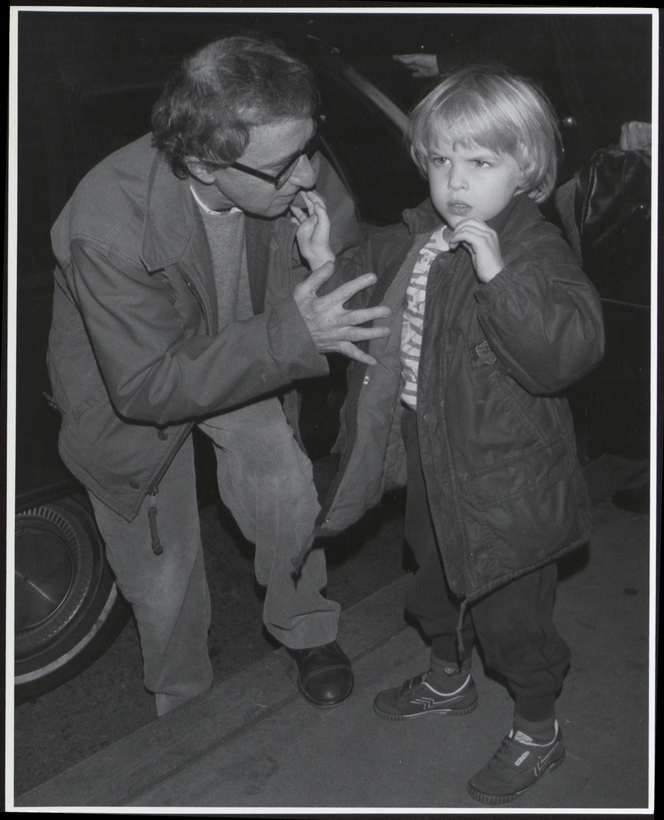Killing two birds with one stone didn’t quite work out as planned for Hachette Book Group, which somehow thought it could get away with publishing both Woody Allen, who has a new memoir (through its Grand Central imprint), and Ronan Farrow, Allen’s son and outspoken critic (through its Little, Brown imprint). Unsurprisingly, and in quick succession, Farrow announced he was splitting from Hachette; Little, Brown staged a walkout; Hachette dropped Allen; and Allen took his memoir to Arcade, which published the book immediately. If only to see this family drama out to what will hopefully be its end, you can order Allen’s book, Apropos of Nothing, now.
Narcissism and betrayal don’t stop with the Allen–Farrow saga: what began as an effort to help actress Helena Bonham Carter—who’d asked for advice on how to play Princess Margaret on The Crown—soon developed into an intriguing memoir from Margaret’s longtime lady-in-waiting. Read Eleanor Harmsworth’s interview with Lady Glenconner, whose book, Lady in Waiting, is out now. Adrienne Miller, meanwhile, details her coming of age in the male-dominated literary sphere with In the Land of Men. Miller isn’t the only one made to feel like an outsider in her own field: Victoria James writes about her experience as America’s youngest sommelier in Wine Girl, while Bill Keenan takes us into the high-stakes, high-bullshit world of investment banking from the perspective of the young analysts and associates who do the work; read Air Mail’s excerpt of Discussion Materials here.
On the occasion of his first memoir, simply titled Will, the novelist Will Self (Umbrella, Shark, Phone)—a self-proclaimed “hack who gets hired because I do drugs”—has chosen to look back on his years of addiction. In a review of the book, Christian Lorentzen writes, “Unless your interest is therapeutic, the past sins of recovered addicts make for better reading than salvation.” And in Broken Glass, Alex Beam (The Feud) writes about another creative relationship in which affinity blossoms and then dies: this time it’s Edith Farnsworth, architect Mies van der Rohe, and the 20th-century architectural masterpiece their intimate collaboration gave birth to: Farnsworth House.
This year marks the 75th anniversary of the end of W.W. II, and while books on the subject abound, two very different ones have stuck out so far in 2020: Ariana Neumann’s When Time Stopped, a heartrending memoir about her father’s past as a Jew escaping the Nazis, and Erik Larson’s The Splendid and the Vile, a vivid account of the London Blitz. “I’m a naturally undemonstrative Englishman,” writes Andrew Roberts (Churchill: Walking with Destiny) in his review of The Splendid and the Vile, yet, when reading the book, “I had a feeling of overwhelming pride in my poor, brave, battered old city.” Other historical titles range from the love life of Pablo Picasso—read Ruth Peltason’s review of Picasso’s Women—to Jill Wine-Banks’s memoir, The Watergate Girl, which revisits her experience as part of the Watergate Special Prosecution Force, reviewed by Liesl Schillinger.
For the whistleblowers of today, politics is not the only area of appeal. Memoirs from inside Uber (Whistleblower, by Susan Fowler), Instagram (No Filter, by Sarah Frier), Facebook (a book of the same name by Steven Levy), and, more broadly, Silicon Valley as a whole (Uncanny Valley, by Anna Wiener), underline the power and influence of the technology industry.
Tech is just one of the issues occupying our minds at the moment—Brexit, for example, is still very much happening. For a front-row seat to the action that brought us Boris Johnson, read former British Commons speaker John Bercow’s memoir, Unspeakable, in which, among other things, he calls former prime minister David Cameron a “24-carat-snob”; the book is reviewed by Henry Porter (White Hot Silence). The U.S.’s own sad leadership is analyzed by Preet Bharara (Doing Justice) in his review of Susan Hennessey and Benjamin Wittes’s Unmaking the Presidency—though written pre-coronavirus, most criticisms are, as one might expect, just as applicable in our new, devastating landscape.
Impossible to not add Russia to this list as its own president quietly seeks to extend his power until at least 2036: filmmaker Alex Gibney (Citizen K) reviews Joshua Yaffa’s Between Two Fires, writing, “Rather than rebel, contemporary Russians are left to chuckle cynically at the dark joke of Putin’s power.” Speaking of dark power, Kim Ghattas’s Black Wave offers a compelling account of the Middle East’s unraveling, while Mike Giglio’s Shatter the Nations, reviewed by Janine di Giovanni, is the story of ISIS’s rise and fall. And, for a reminder of what’s at stake when the world gets moving again, pre-order Tales of Two Planets. Out this summer, it’s edited by John Freeman and includes literary essays on climate change from Margaret Atwood, Lauren Groff, Edwidge Danticat, and others.
On a lighter note, imagine trying to get through airport security with several rows of fertile eggs strapped to your midsection—and not just any eggs, but those stolen from the nests of wild Peregrine falcons. Thus begins the story of Joshua Hammer’s enthralling The Falcon Thief; don’t miss a review as entertaining as the book itself by Mark Bowden (Black Hawk Down). Then there’s Fanny Singer’s delightful Always Home, a cookbook and culinary memoir with a foreword from the author’s mother, Alice Waters, and Cécile David-Weill’s Parents Under the Influence, a parenting book you’ll actually want to read, especially when the kids are home for the foreseeable future.

